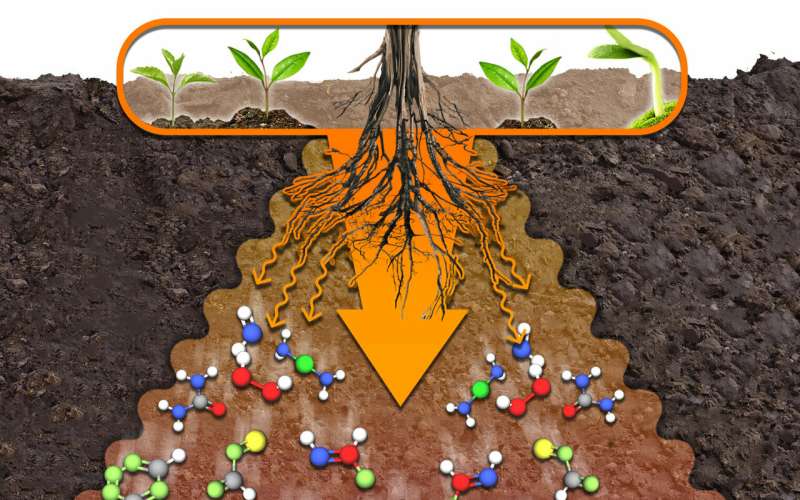Agrochemist doubles the speed of organic substance decomposition in the soil

A RUDN agrochemist provides a detailed description of decomposition of organic substances in soil under the influence of carbon-bearing additives. In the course of the study, the authors found that adding glucose and plant remains to the soil at a particular moment doubles the speed of decomposition. The results of the work could speed up agricultural production. The article was published in Soil Biology and Biochemistry.
For the soil to be fertile, the volumes of incoming and outgoing organic carbon should be balanced. The level of incoming carbon depends on numerous factors, most importantly microbial activity. With many microbes in the soil, organic substances decompose faster and the level of carbon gets higher. However, to exist, microbes require glucose. The quality of glucose-providing substances affects microbial activity, thus increasing or decreasing the speed of decomposition of organic plant remains. A RUDN agrochemist found that adding glucose at different stages of this process suppresses it, and adding plant secretions (essential oils, resins, wax, and so on) speeds it up.
According to the scientists, the effect of adding glucose to the soil depends on the stage of the decomposition process. On the first (intensive) stage, it does not cause any visible changes, as microbes have enough energy at this point. When glucose is added during the second stage (deceleration of decomposition), it further reduces the speed of the process and is stored in the biomass. On the stabilization stage, glucose stops affecting the decomposition speed once again. When plant roots are added to the soil together with glucose at this stage, the speed of the process increases by 60 percent, and when roots are replaced by sprouts, by 104 percent.
"At the stage of decelerated decomposition, the activity of both plant remains and decomposition of organic substances highly depended on added glucose, which led to microbial consumption of organic substances from the soil. Generally, our results are important for analyzing the influence of different carbon sources, such as products of roots or microbes, on short- and long-term organic substances turnover," said Yakov Kuzyakov, a co-author of the work, and a Ph.D. in biology from RUDN.
More information: Muhammad Shahbaz et al. Interactive priming effect of labile carbon and crop residues on SOM depends on residue decomposition stage: Three-source partitioning to evaluate mechanisms, Soil Biology and Biochemistry (2018). DOI: 10.1016/j.soilbio.2018.08.023
Provided by RUDN University



















